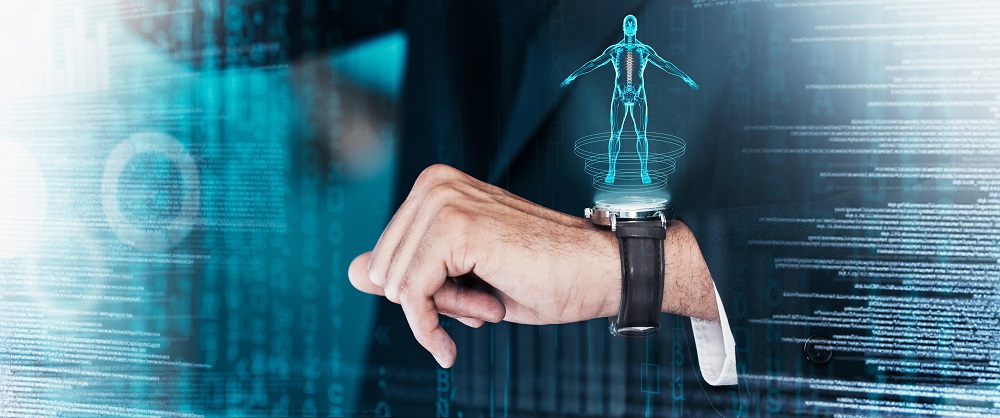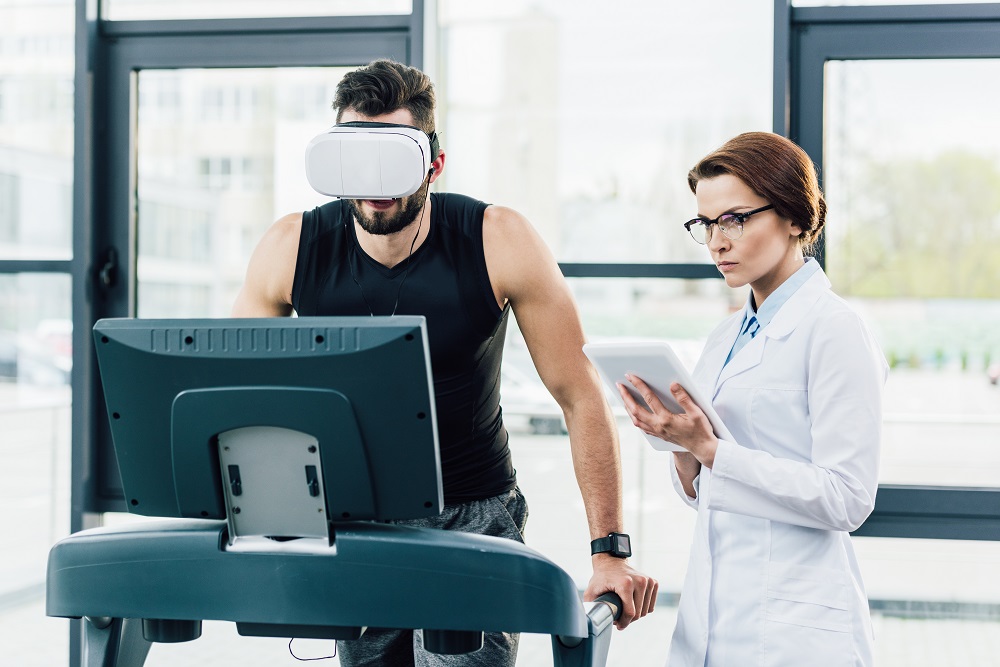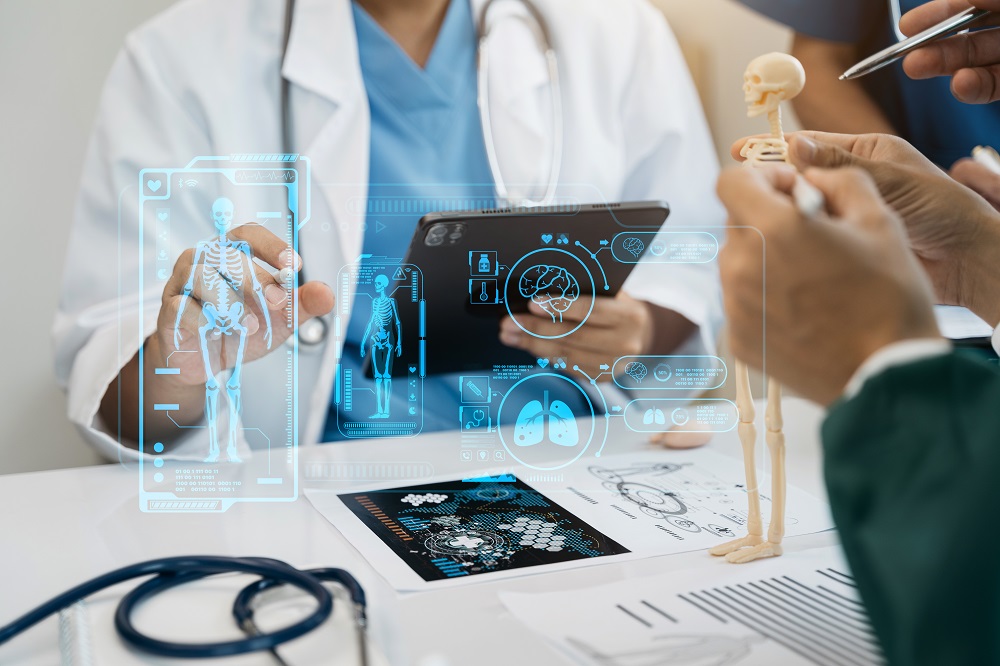The Role of Human Augmentation in Healthcare: Better Sleep, Exercise, and Mental Health
Amidst the rapid technological advancements in healthcare, the transformative role of human augmentation in enhancing sleep, exercise, and mental health cannot be overstated. With the integration of AI-powered tools, individuals now have the power to significantly improve their quality of life on a personal level.
These innovations are reshaping clinical care and daily wellness routines, from managing mental health, enhancing sleep quality and even to the extent of body composition monitors (BCIs). You can read about BCIs by clicking HERE.
This article will explore how AI and human augmentation technologies revolutionize sleep, exercise, and mental health. These tools, from AI copilots monitoring mental health to wearable devices tracking sleep patterns, give individuals more control over their health. We will also examine potential future developments that could redefine mental and cognitive care.

Human Augmentation: Expanding into Mental Health and Sleep
Human augmentation involves technologies that enhance physical and cognitive abilities. While traditionally associated with prosthetics and rehabilitation, these innovations are now used to manage mental health and improve sleep. AI-powered solutions are making tracking and managing these crucial aspects of well-being easier, providing individuals with the resources they need to live healthier lives.
1. AI and Mental Health: Cognitive Augmentation for Emotional Well-Being
Mental health is more important than ever, and AI-powered cognitive augmentation is helping people take better care of it. AI-driven tools monitor emotional well-being, suggest cognitive behavioural therapy (CBT) techniques, and guide mindfulness practices, offering personalized mental healthcare at your fingertips.
For instance, Woebot Health is an AI-driven chatbot that provides users with CBT, helping them manage stress, anxiety, and depression. With Woebot, users have access to mental health support 24/7, a resource that is invaluable and easily accessible outside traditional clinical settings. Similarly, apps like Wysa use AI to offer emotional support and guide users through exercises to reduce stress and anxiety.
These AI copilots are revolutionizing mental health care by making support more accessible and helping people feel cared for in managing their mental well-being every day.
2. AI in Sleep Management: Monitoring and Improving Rest
Sleep is critical for both mental and physical recovery, yet many of us struggle to get enough of it. AI-powered devices are changing how we monitor and improve our sleep, offering real-time data and personalized insights to ensure better rest.
For instance, the Oura Ring is a wearable device that tracks heart rate, body temperature, and movement to assess sleep quality. Using AI algorithms, the Oura Ring provides daily insights into your sleep cycles and suggests actionable steps, like adjusting bedtime or reducing screen time, to improve sleep quality.
Another example is Sleepio, an AI-powered sleep improvement program that uses CBT techniques to help users manage insomnia. By tracking behaviour and offering personalized recommendations, Sleepio delivers strategies for long-term improvements in sleep patterns.
With these AI-driven innovations, better sleep is no longer a mystery—you can improve your rest and overall health one night at a time.
How Human Augmentation Technologies Are Transforming Healthcare
While human augmentation traditionally focuses on physical recovery, it is increasingly clear that these technologies also significantly impact mental and emotional well-being. Here are some key areas where human augmentation is making strides:
1. Prosthetics: Restoring and Enhancing Mobility
Modern prosthetic limbs are becoming more advanced, allowing users to regain natural movement. However, the emotional and mental support provided during rehabilitation is just as crucial for a full recovery. AI tools are now being integrated into this process to provide comprehensive mental health support as patients adapt to new technologies.
2. Exoskeletons: Rehabilitation and Beyond
Exoskeletons are another powerful tool in physical rehabilitation, especially for patients recovering from spinal cord injuries or strokes. As these technologies evolve, healthcare providers are also increasingly focusing on the mental and emotional aspects of recovery. This comprehensive approach ensures patients are supported physically and mentally, making recovery more effective.
AI Copilots in Personal Health: Mental and Sleep Well-Being
On a personal level, AI copilots are now helping individuals manage their mental health and sleep more effectively. Wearable devices like Fitbit and Apple Watch continuously monitor sleep patterns and physical activity, while apps like Calm and Headspace offer guided meditation, stress management, and sleep assistance.
These AI-powered tools make it easier to track and actively improve mental health. Whether you want to unwind before bed or reduce anxiety during a busy day, these copilots help.
AI Devices for Optimizing Exercise Programs
Exercise optimization is another area where AI is making an impact. Personalized workout plans, real-time performance tracking, and dynamic adjustments based on progress are helping individuals achieve their fitness goals more efficiently.
For example, Fitbod generates customized strength-training programs tailored to users’ equipment, muscle fatigue, and workout history. Meanwhile, Tonal uses AI to adjust resistance levels in real time, creating an evolving workout plan that maximizes strength gains.
These tools enhance physical performance and integrate seamlessly with mental health and sleep management, promoting overall well-being.
The Future of Human Augmentation in Healthcare
The future of human augmentation holds even more exciting possibilities. Researchers are developing brain-computer interfaces (BCIs), such as Neuralink, that could help regulate brain activity and improve mental health conditions like anxiety and depression.
Gene-editing technologies like CRISPR may one day be used to treat sleep disorders or mental health issues by targeting specific genes. These advancements promise to revolutionize healthcare, offering more personalized and effective treatments for physical, mental, and cognitive health, and bring hope for a healthier future.
These advancements promise to revolutionize healthcare, offering more personalized and effective treatments for physical, mental, and cognitive health.
Ethical Considerations
While these innovations are exciting, they also raise important ethical questions. For example, how will mental health and sleep-tracking data be protected? Ensuring privacy and equitable access to these technologies is essential so everyone can benefit from these advancements regardless of financial status.
Conclusion
Human augmentation technologies are reshaping healthcare by providing more personalized, accessible care for sleep, mental health, and exercise. From Woebot and Oura Ring to Fitbod and Sleepio, AI-powered tools put individuals in control of their health like never before. As these technologies evolve, the future promises even more sophisticated solutions to help us lead healthier, happier lives.
If you are ready to improve your sleep, mental health, or fitness routine, consider exploring these AI-driven innovations today!
Amazon Books for Additional Reading:
“Why We Sleep: Unlocking the Power of Sleep and Dreams” by Matthew Walker
This bestseller provides a deep understanding of the science behind sleep and offers tips on how to improve your sleep quality and overall health. Review by clicking HERE.Cognitive Behavioural Therapy Made Simple” by Seth J. Gillihan
A comprehensive guide to CBT, offering practical techniques to manage stress and anxiety—an ideal resource for mental health improvement alongside AI tools Review by clicking HERE.“The Sleep Solution: Why Your Sleep is Broken and How to Fix It” by W. Chris Winter
This book provides a detailed look at common sleep disorders and offers actionable strategies to improve sleep health. Review by clicking HERE.“Superhuman: Life at the Extremes of Mental and Physical Ability” by Rowan Hooper
This book delves into the future of human augmentation, offering insights into the potential of mental and physical enhancements through technology. Available on Amazon
Keep Up To Date With An AI Prompt: What are the newest developments in personal healthcare apps? Share the latest trends and how AI can help improve your health, sleep and mental wellbeing.

















